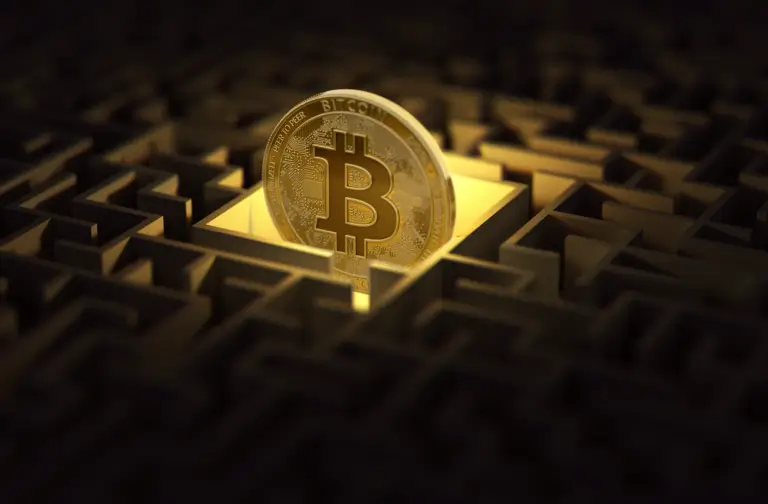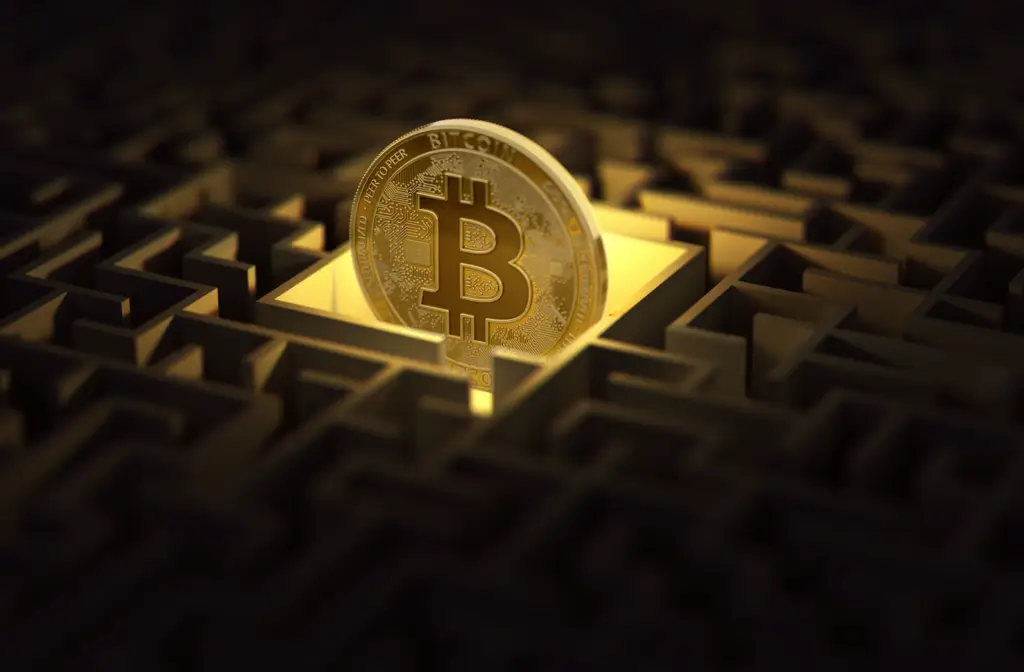How To Hide Bitcoin from The Government
Table of Contents
ToggleWhat you need to know about hiding Bitcoins from the government in the ultimate guide
With Bitcoin, people can transact without intermediaries, censorship, or surveillance. Bitcoin, however, cannot be completely anonymous. With enough time and resources, anyone can trace every transaction on a public ledger called the blockchain. As a result, using Bitcoin for illegal or sensitive purposes might put our privacy at risk.
Fortunately, anonymous ways describe how to hide Bitcoin from the government and make it untraceable. This article will share four ways to protect your identity and financial independence when using Bitcoin.
1. Use New Bitcoin addresses
The easiest way to hide Bitcoin transactions is to use different Bitcoin addresses for each one. Bitcoin addresses are similar to bank account numbers that you can use to send or receive bitcoins. However, Bitcoin addresses are not associated with our identity, unlike bank accounts. Bitcoin wallets allow us to generate as many addresses as we like.
We can keep our spending patterns and balances secret by creating new addresses for each transaction. As a result, it can be more difficult to track our transactions on the blockchain or associate them with our real identities.
The use of new addresses alone does not guarantee anonymity. It is also imperative to be careful about acquiring and using bitcoins. For example, if we buy bitcoins from an exchange that requires identity verification or if we use a wallet service that collects our personal information, we might expose our identity to third parties that can cooperate with the government or hackers.
2. Use a Log-less VPN
A log-less virtual private network (VPN) is another method of hiding Bitcoin transactions. Using VPN services, our internet traffic is encrypted and routed through a server in another country. This way, we can hide our IP address, a unique device identifier, and location on the internet.
IP addresses reveal many things about us, including our country, city, ISP, and sometimes our physical address. Bitcoin transactions linked to our IP address can reveal our identity and location.
With a log-less VPN, we can hide our IP address and replace it with one from a different country or region. In this way, anyone trying to trace our Bitcoin transactions will only see the VPN server’s IP address, not ours.
There are, however, anonymous VPNs that are better than others. Some VPNs can share our activity logs with the government or other parties if requested. As a result, we should choose a VPN that does not store any information about our connection or usage.
3. Use Bitcoin Mixing Services
A Bitcoin mixing service is a more advanced way to hide Bitcoin transactions. Our bitcoins are mixed with other users’ and sent to new addresses that are not linked to our original addresses using a Bitcoin mixer. This way, we can make our transactions anonymous by breaking their traceability.
A Bitcoin mixer works by taking a fee and sending our bitcoins to a large pool of addresses that belong to other users who also want to mix their coins. Then, it sends us back the same amount of bitcoins (minus the fee) from different addresses in the pool. The process can be repeated several times for extra privacy. Doing this lets you see how to hide Bitcoin from the government.
However, some risks and challenges are associated with using a Bitcoin mixer. The mixer service, for instance, has to keep records of our transactions and not steal or lose our bitcoins. Moreover, we should ensure the mixer is reliable, secure, and has enough liquidity and users to deliver adequate mixing.
4. Hide Bitcoin transactions using TOR
Last, we will share how to hide Bitcoin from the government using TOR. By hiding our IP address and encrypting our traffic, Tor allows us to browse the internet anonymously.
Additionally, TOR allows us to use Bitcoin services only available on the TOR network, such as hidden wallets or mixers, to enhance our Bitcoin privacy. The anonymity of these services is enhanced by the fact that our IP addresses and domains are not exposed to anyone.
There are, however, some disadvantages and limitations associated with using TOR. Sometimes, TOR can cause our internet connection to slow down and make websites inaccessible. In addition, we should be careful when visiting sites on TOR since sous may be malicious or illegal.
Do governments have the ability to track Bitcoin transactions?
Bitcoin transactions are not entirely anonymous. There is a push by various governments to tighten the laws surrounding crypto space. Countries are implementing Know Your Customer (KYC) and Anti-Money Laundering (AML) regulations which help the government reveal your identity on centralized trading platforms. This way, governments can quickly discover your transactions and what you have in your Bitcoin wallet.
How do we hide our Bitcoin?
We can use a highly secure, user-friendly crypto payment solution provider that offers different types of Crypto Debit cards and wire transfers that let us purchase and store Bitcoin without disclosing my identity or wallet address.
Online
The Bitcoin virtual card lets us pay online anonymously without disclosing our identity or wallet address. Loading virtual cards with any fiat currency and using them online is possible.
Point-of-Sale (POS) terminals
we can use Bitcoin anonymously at point-of-sale (POS) terminals, with Crypto Debit cards like plastic or metal cards that work like regular debit cards. We can buy goods and services with these cards at any POS terminal that accepts Visa or Mastercard.
Bitcoin ATMs
we can also use Bitcoin anonymously through automated teller machines (ATMs) by using a Bitcoin card that allows us to withdraw cash from any ATM worldwide.
Bitcoin provides anonymous transactions with several benefits. What are they?
Bitcoin anonymous transactions have many benefits. Sous are mentioned below:
1. Crypto Anonymity Provides Me Secure Transactions
we feel secure in making Bitcoin transactions that aren’t connected to our real identity or location. Crypto anonymity prevents transaction details from being seen by anyone. Our activity is also not logged, so we can be confident and worry-free using them. It protects us from identity theft, fraud, or blackmail caused by traditional payment methods.
2. Crypto Anonymity Protects My Financial Freedom
we value the benefit of protecting our financial independence and autonomy. We can avoid government interference, censorship, or confiscation of our funds using Bitcoin anonymity. We can also access financial services that may be banned or restricted in our home country.
We enjoy global accessibility using Bitcoin as digital cash that we can control and manage without the involvement of any third parties.
3. Crypto Anonymity Enhances My Social Responsibility
we also care about social responsibility and ethical values. One of the benefits of hiding Bitcoin transactions is that it allows us to support causes and movements without fear of retribution or persecution. For example, it empowers us to contribute to positive social change. As a result, we can donate to charities restricted by the government.
4. Crypto Anonymity Gives Me More Options and Opportunities
We have more options and opportunities in the crypto world with Bitcoin anonymity. We can access markets and niches that are hidden or inaccessible. Consequently, we can discover new features and functionalities that may enhance our user experience.
That’s why we need to know how to hide Bitcoin from the government and enhance our privacy. We feel more secure and anonymous using Bitcoin because of its anonymity feature.
Should Bitcoin be anonymous or non-anonymous?
Bitcoin is not entirely anonymous but pseudonymous. A blockchain transaction is linked to a public address that can be tracked back to an IP address or exchange account. There are some methods of using Bitcoin anonymously; however, these methods aren’t foolproof and may pose risks. For example, we might unknowingly use a mixing service that is a scam or a honeypot, a VPN that keeps logs or leaks our IP address, some cash transactions may be unsafe or illegal, or a Tor node may be hacked maliciously. Therefore, we should always conduct our research and use these methods accordingly.
Some people argue that Bitcoin should be non-anonymous because it is part of the digital world, where transparency and accountability are valued. Bitcoin’s ledger is public so that anyone can verify and audit transactions. It prevents fraud, corruption, censorship, and double-spending. However, some argue that Bitcoin should also respect the privacy and security of its users, who may have legitimate reasons to conceal their transactions. For instance, many users want privacy for various reasons, including protecting their data, avoiding identity theft, evading censorship, or simply avoiding persecution. Therefore, Bitcoin should offer users anonymity and transparency depending on their privacy needs and preferences.
Should we have an anonymous Bitcoin wallet?
We may want an anonymous Bitcoin wallet if we value our privacy and security when using Bitcoin. However, we should be aware that having a wallet that does not reveal our identity is not enough to guarantee our anonymity. We also need to be careful about how we acquire and use Bitcoin. We may lose anonymity if we buy or send Bitcoin from an exchange requiring us to verify our identity. Therefore, we should consider using a wallet that allows us to operate anonymously and avoid transactions linking our identity to our wallet.
Bitcoin Anonymity Risks:
Even though Bitcoin anonymity protects my financial freedom and privacy, we wonder how to hide Bitcoin from the government and other parties. It exposes us to some risks that we should be aware of. The following are four potential risks associated with Bitcoin anonymity:
1. Identity Theft
we can become a victim of identity theft if we are not careful with our personal information when using Bitcoin anonymity. While Bitcoin hides our personal information, our crypto wallet address is public. Hackers could use web trackers and cookies to capture and use our private information and data.
2. Fraud
Another risk of Bitcoin anonymity is that we may be scammed or defrauded by dishonest actors who exploit our trust or ignorance. A fake charity or a phishing website pretending to be legitimate could trick us into sending Bitcoin. Once we send Bitcoin, there is no way to reverse or refund it.
3. Legal Trouble
Thirdly, we can get into legal trouble using Bitcoin for illegal or sensitive purposes. If we use Bitcoin to hide or transfer illicit funds, we could be accused of money laundering, tax evasion, or terrorism financing. Authorities may suspect we have committed some wrongdoing even if we are innocent.
4. Technical Issues
Fourthly, we can lose access to our Bitcoin if we encounter technical problems or errors. For example, we cannot access our Bitcoin if we lose or forget our wallet password. Additionally, we may lose our wallet device or have it stolen, water damaged, or damaged by malware.
Conclusion:
We have several options if we want to know how to hide Bitcoin from the government. We can use Bitcoin cards to spend and store crypto without disclosing our identity or wallet address. ATMs, POS terminals, and online services accept these Debit cards. However, we should also be careful about using Bitcoin, as some transactions may reveal our identity to the government or third parties.
Although Bitcoin anonymity has some advantages, it also comes with challenges and risks that we must be aware of and prepared for. To keep our personal information secure, we should verify the legitimacy of the services and people we deal with, follow the laws and regulations of our jurisdiction, and back up our wallet device and password.

